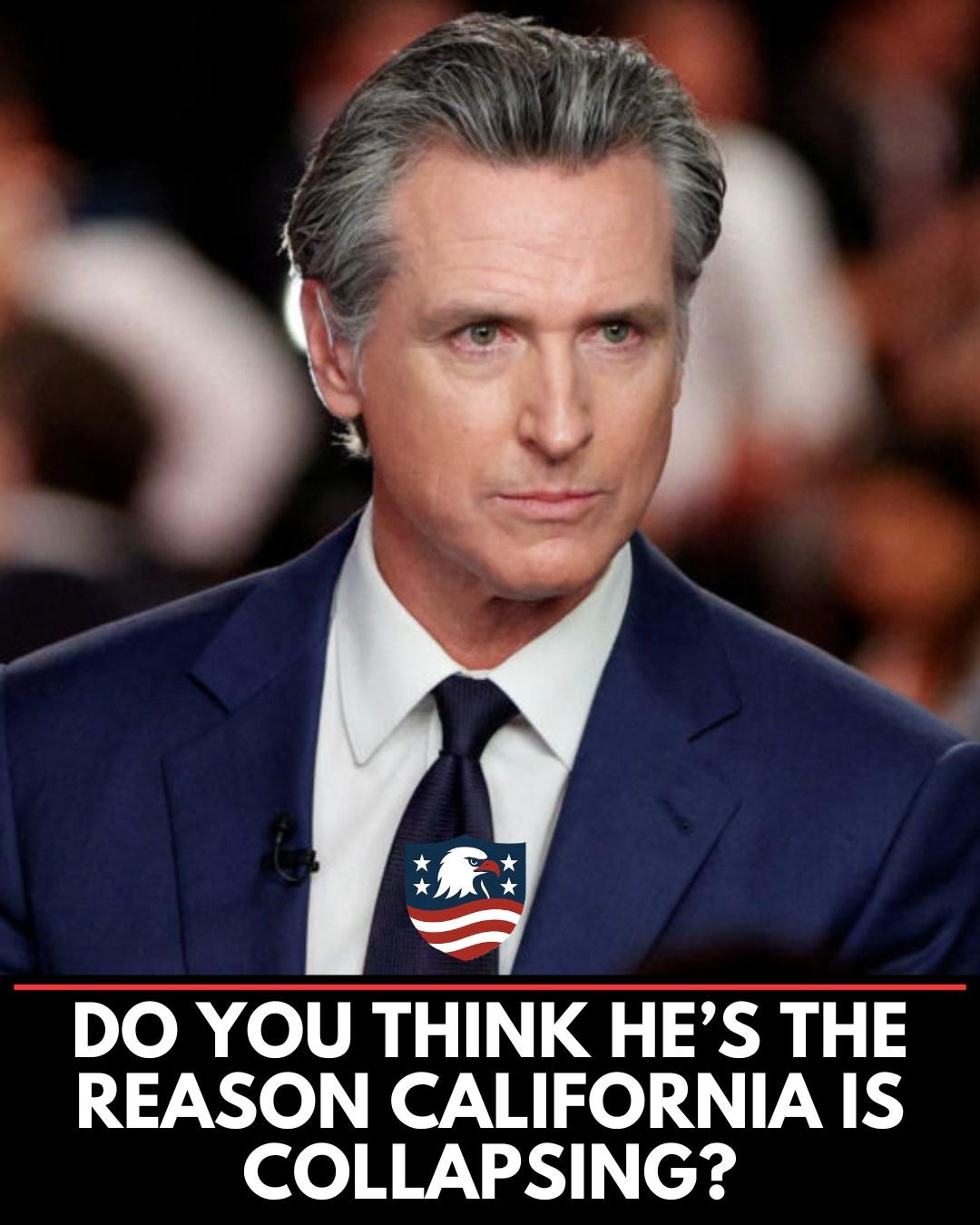California, long seen as a beacon of opportunity, innovation, and cultural influence, now finds itself mired in a growing crisis. From surging homelessness to skyrocketing living costs, critics argue the Golden State’s shine has dulled under the leadership of Governor Gavin Newsom. His supporters, however, see a leader navigating unprecedented challenges with progressive vision. The question remains: is California’s current state of turmoil a direct result of his policies, or is he simply the one left to manage decades of structural problems?

A State Under Pressure
Over the past several years, California has faced mounting issues that have drawn national attention. The state’s homeless population now exceeds 180,000, representing nearly a third of the entire U.S. total. Major cities like Los Angeles, San Francisco, and Oakland grapple with tent encampments that stretch for blocks, fueling concerns over public health, safety, and urban decline.
Housing prices, meanwhile, have spiraled out of reach for many residents. The median home value now hovers near $800,000, and even modest apartments often demand exorbitant rents. For critics, these conditions reflect the failure of Newsom’s administration to enact effective reforms in zoning, permitting, and affordable housing initiatives.
Economic and Fiscal Concerns
California’s economy remains the largest of any U.S. state, yet cracks have begun to show. Tech sector slowdowns, the flight of businesses to lower-tax states, and a projected multi-billion-dollar budget deficit have raised alarms. Opponents accuse Newsom of fostering a hostile business environment through high taxes, strict regulations, and aggressive climate policies that increase operational costs.
Supporters counter that California’s economic strength remains unmatched, citing record venture capital investment, the state’s dominance in entertainment and technology, and robust renewable energy initiatives. They argue that short-term fiscal pressures pale in comparison to the long-term benefits of sustainable growth policies.
The Social Policy Divide
Newsom has championed progressive policies on climate change, healthcare access, and criminal justice reform, which have won praise from national Democrats but also ignited fierce backlash. His push for stricter environmental regulations, for example, has been hailed as visionary by climate advocates but criticized by industry leaders as overly burdensome.
The governor’s handling of public safety has also come under scrutiny. While violent crime rates have fluctuated nationwide, California’s rising concerns over property crime and retail theft have led opponents to label his approach as too lenient.
Leadership in Crisis
During the COVID-19 pandemic, Newsom’s early and aggressive lockdown measures drew both praise for saving lives and condemnation for damaging small businesses. The infamous recall election in 2021, while unsuccessful, highlighted deep political divisions within the state.
For some, Newsom’s leadership embodies California’s progressive identity—a willingness to tackle inequality, invest in clean energy, and expand social services. For others, he symbolizes a government disconnected from everyday struggles, prioritizing ideology over pragmatic governance.
The Verdict Ahead
As California approaches future elections, the debate over Gavin Newsom’s legacy will intensify. Is he a visionary reformer steering the state through turbulent waters, or the architect of its decline? The answer may depend on whether the challenges facing California—homelessness, affordability, crime, and fiscal instability—show signs of real improvement in the years to come.
One thing is certain: the stakes for California’s future have never been higher, and the eyes of the nation remain fixed on the Golden State.





